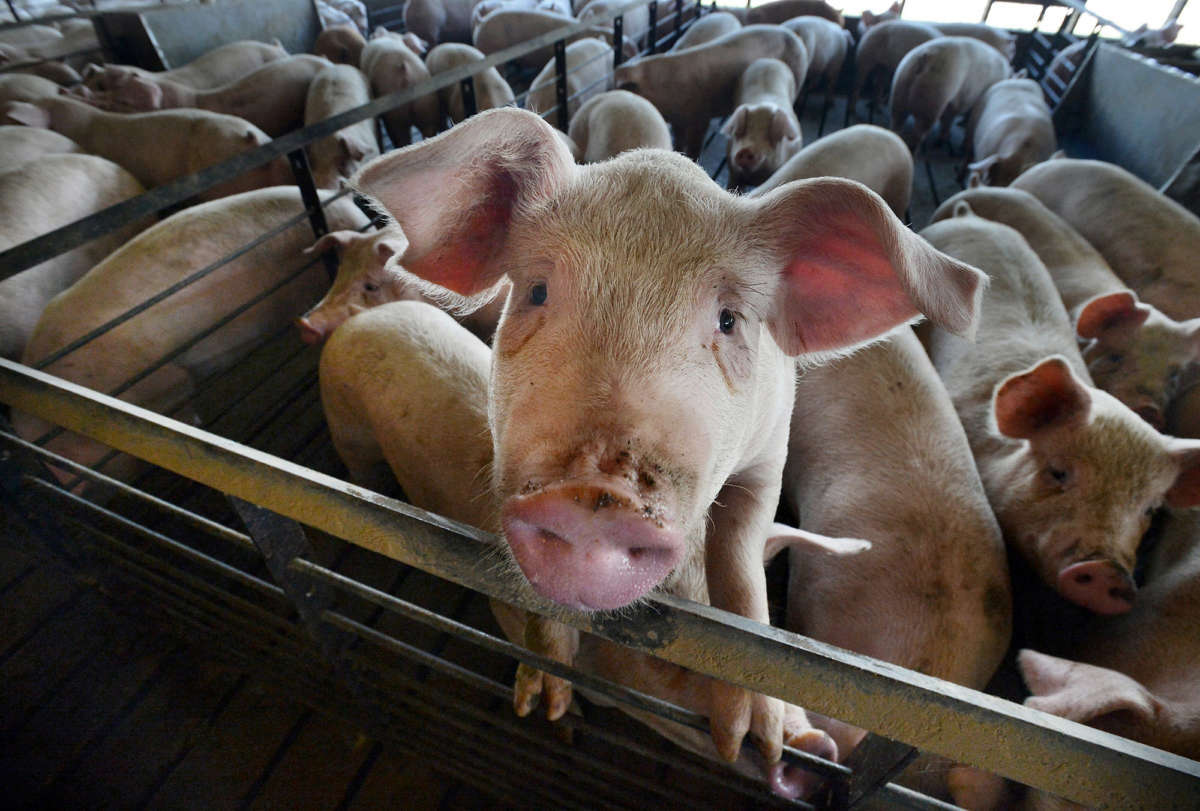Support justice-driven, accurate and transparent news — make a quick donation to Truthout today!
A new study from a group of agricultural researchers found that nearly 18,000 deaths occur annually in the United States due to air pollution coming from farms.
The study, which was published in the journal Proceedings of the National Academy of Sciences, noted that gases associated with manure and animal feed are producing particles that are able to drift hundreds of miles away from their source. Most of the deaths attributable to farm pollution, however, come from animal-based agriculture, accounting for 80 percent of the deaths the study uncovered.
Chronic exposure to increased levels of fine particulate matter (sometimes shortened to PM2.5) that is released from farms “increases the risk of heart disease, cancer, and stroke,” an analysis of the study noted.
Notably, deaths associated with farm pollution are more localized than deaths that occur with greenhouse gas pollution. Communities upwind from farms discharging the pollutants are at greatest risk, said Jason Hill, University of Minnesota professor and a lead author of the study. In other words, the health effects from agriculture-based air pollution tend to be more localized, dependent upon local weather patterns and other factors.
While that reduces the risk from these pollutants at the national and global levels (areas most affected by this type of pollution are in eastern North Carolina, California’s Central Valley and the Upper Midwest), the annual number of deaths caused by farm pollution now exceed deaths caused by pollution from coal power plants in the U.S.
The biggest culprit behind the deaths from farm pollution, in the study’s estimation, is ammonia, a chemical that’s released by manure and fertilizer, and which often combines with other pollutants found on farms, including nitrogen and sulfur. Hill, speaking with The Washington Post about the study, pointed out that animal waste is often stored in “lagoons” on farms, where huge amounts of ammonia are generated by the breakdown of animal feces. Ammonia is also created when farmers apply too much fertilizer on crops.
According to the study, livestock waste and fertilizer overuse likely accounted for about 12,400 deaths per year. While particulate matter emanating from “dust from tillage, livestock dust, field burning, and fuel combustion in agricultural equipment use” accounted for around 4,800 more deaths annually.
Agriculture industry leaders were quick to push back against the study’s findings. “U.S. pork producers have a strong track record of environmental stewardship,” claimed Jim Monroe, a spokesperson for the National Pork Producers Council.
A spokesperson for Smithfield Foods, which runs industrial hog operations in North Carolina, agreed with Monroe’s contentions, citing a study from the North Carolina Department of Environmental Quality, which said it didn’t find air quality problems in the areas where they had farms. But that study has some noteworthy flaws, including the fact that monitors used to detect ammonia levels were set up far away from the farms themselves.
Ammonia is a reactive chemical, and is difficult to detect unless a significant amount is released at one time.
In spite of this pushback, the study on agricultural air pollution noted there are potential solutions to the problem that could reduce yearly deaths in the U.S.
“Air quality–related health benefits … can be achieved through the actions of food producers and consumers,” the study’s authors said. Reducing particulate-related emissions, promoting dietary shifts in animals, reducing food loss and waste, and other methods are cited in the study as helpful to reducing the number of deaths from agricultural air pollution.
“The greatest benefits are from changes in livestock waste management and fertilizer application practices,” the study said. “Producer-side interventions in the 10 percent of counties with the highest mitigation potential alone could prevent 3,600 deaths per year.”
Methods based out of regenerative agriculture — described as “a system of farming principles and practices that seeks to rehabilitate and enhance the entire ecosystem of the farm” by the Climate Reality Project — could also be beneficial for scaling back farm-based air pollution, particularly in California, where such efforts could potentially reduce the impact of wildfires in the state. Such methods (including encouraging animals to graze natural plants, shrubs, or grass on the land, rather than animal feed, and engaging in no-till farming strategies to increase moisture levels in the soil) have been cited by farmer Alexis Koefoed as helping her family’s farm survive a wildfire last year.
“I think what the fire reinforced for me is that regenerative agriculture, managing the soil, using animals as grazers to build healthy soil is absolutely the direction to go in,” Koefoed said.
Beyond saving family farms, reducing the impact of wildfires could result in better health outcomes for nearby areas, particularly since smoke from those fires has been found to be 10 times more harmful than from other sources, including car exhaust.
A terrifying moment. We appeal for your support.
In the last weeks, we have witnessed an authoritarian assault on communities in Minnesota and across the nation.
The need for truthful, grassroots reporting is urgent at this cataclysmic historical moment. Yet, Trump-aligned billionaires and other allies have taken over many legacy media outlets — the culmination of a decades-long campaign to place control of the narrative into the hands of the political right.
We refuse to let Trump’s blatant propaganda machine go unchecked. Untethered to corporate ownership or advertisers, Truthout remains fearless in our reporting and our determination to use journalism as a tool for justice.
But we need your help just to fund our basic expenses. Over 80 percent of Truthout’s funding comes from small individual donations from our community of readers, and over a third of our total budget is supported by recurring monthly donors.
Truthout has launched a fundraiser to add 379 new monthly donors in the next 6 days. Whether you can make a small monthly donation or a larger one-time gift, Truthout only works with your support.
